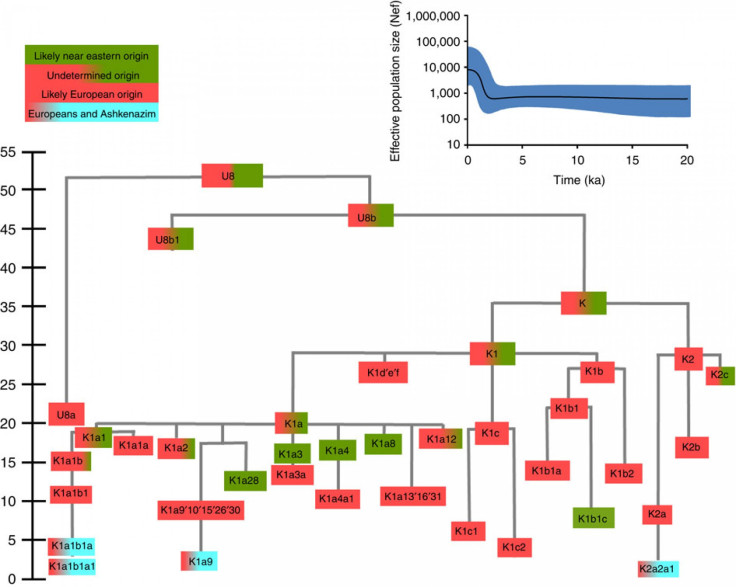Ashkenazi Jews Trace Ancestry To Europe Not The Near East, Ancient Jewish Men ‘Married European Women’

The origin of Ashkenazi Jews, the Jews of Central and Eastern Europe and their descendants, has remained a controversial topic in archaeogenetics.
But a recent study rooted in DNA evidence may shed light on how the closed community migrated and whom they married. The findings, published in Nature Communications, focused on mitochondrial DNA samples and found that most Ashkenazi Jews are at least half genetically European, rather than Middle Eastern as previously thought.
“Like Judaism, mitochondrial DNA is passed along the maternal line,” the authors wrote. “Its variation in the Ashkenazim is highly distinctive, with four major and numerous minor founders. However, due to their rarity in the general population, these founders have been difficult to trace to a source.”
Jews from the Holy Land settled throughout the Roman Empire around 2,000 years ago, and some ended up in Central and Eastern Europe by the medieval period. While Jewish law forbids marriage outside the faith, new research suggests that many Ashkenazi men in fact married non-Jewish women who converted to the religion.
"This suggests that, even though Jewish men may indeed have migrated into Europe from Palestine around 2,000 years ago, they seem to have married European women," Professor Martin Richards from the University of Huddersfield in England said, pointing to previous studies on Y-chromosomes in Ashkenazi Jews that prove the male lines trace back to the Near East.
Using mitochondrial genomes of 3,500 people from Europe, the Caucasus and the Near East, researchers found that they originated 10,000 to 20,000 years ago. The findings suggest that ancient Jews can trace their female line to Southern and Western Europe rather than the Middle East.
Four Ashkenazi "mothers" were responsible for 40 percent of Ashkenazi mitochondrial DNA and all came from Europe, LiveScience reports. At least 80 percent of Ashkenazi maternal lineage came from European women, and 8 percent from the Middle East. The findings disprove the commonly held belief that Ashkenazi Jews originate from the Khazar Kingdom, a region in modern-day southern Russia and the Caucasus that in early medieval times had a large population of converted Jews.
"The simplest explanation was that it was mainly women who converted and they married with men who'd come from the Near East," Richards told LiveScience.
Despite the latest revelation, Ashkenazi Jewish ancestry still has more unsolved mysteries. "The origins of the Ashkenazim is one of the big questions that people have pursued again and again and never really come to a conclusive view," Richards said, adding that the latest data is "compelling."
© Copyright IBTimes 2025. All rights reserved.




















